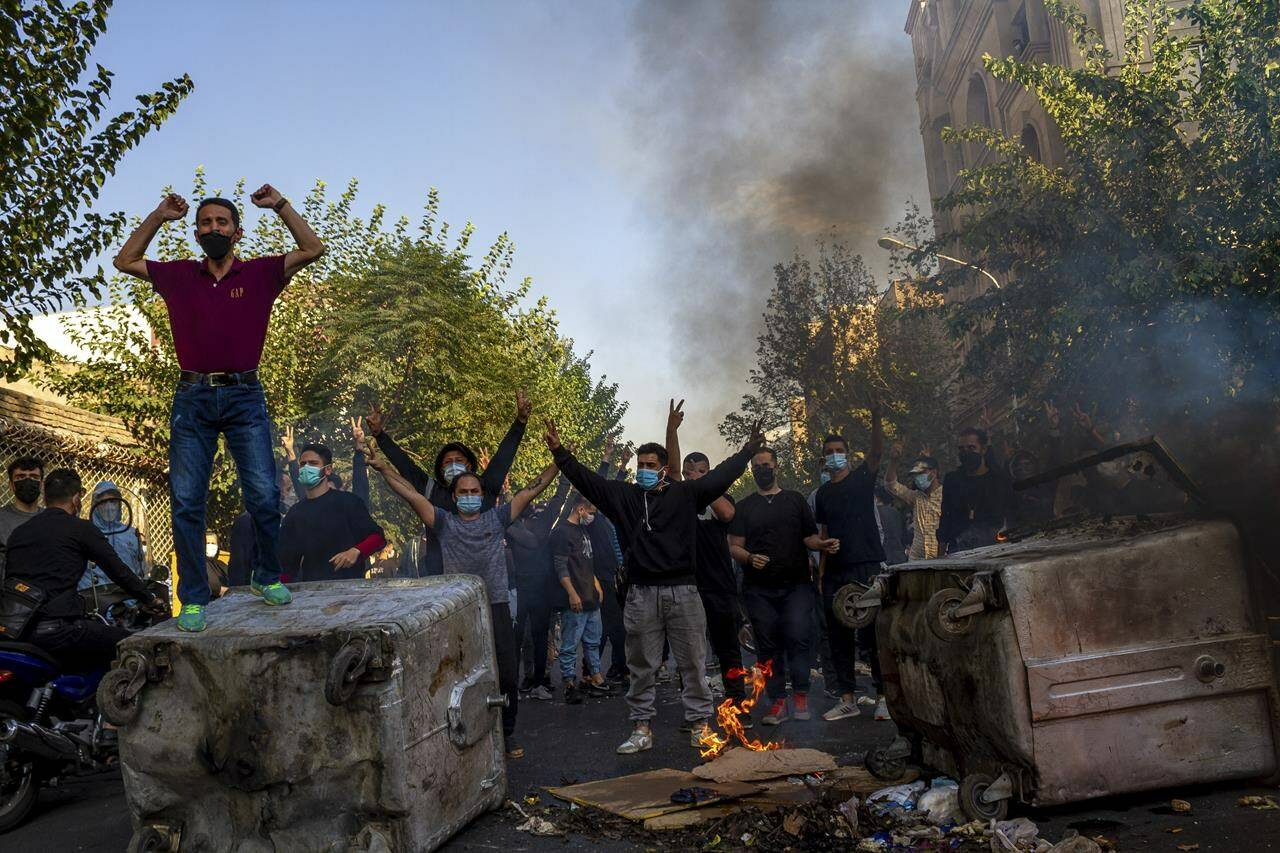Canada is adding Iran’s national police force and an Iranian international university to its sanctions list as Tehran continues to crack down on weeks of dissent.
Foreign Affairs Minister Mélanie Joly announced the addition of Iran’s Law Enforcement Forces and Al-Mustafa International University to Canada’s sanctions list on Monday.
Joly accused the police force of participating in the lethal suppression and arbitrary detention of Iranian protesters.
Security forces have dispersed gatherings with live ammunition and tear gas over weeks of sustained protests.
At least 270 people have been killed and 14,000 arrested, according to the group Human Rights Activists in Iran.
Demonstrations have continued, even as the feared paramilitary Revolutionary Guard has warned young Iranians to stop.
Joly also accused the Iranian regime of using Al-Mustafa University, which has branches in several countries, to spread its ideology abroad and recruit foreign fighters.
Canada is also adding four individuals, including the police commander of Tehran, to its sanctions list, which now includes 93 people and 179 entities.
Those listed will have their Canadian-held assets frozen as Ottawa tries to enact a new law to seize those assets and disperse them to victims and human rights defenders.
“The Iranian people, including women and youths, are risking their lives because they have endured for far too long a regime that has repressed and violated their humanity,” Joly said.
“They are demanding that their human rights be respected, and it is our duty to echo and amplify their voices. Canada will continue to support the Iranian people as they courageously demand a better future.”
The sanctions were revealed on Monday as Iranian authorities announced they will hold public trials for 1,000 people over the protests that have convulsed the country.
The mass indictments mark the government’s first major legal action aimed at quashing dissent since unrest erupted more than six weeks ago.
Iran’s state-run IRNA news agency quoted judicial officials as saying that a thousand people who had a central role in the protests would be brought to trial in Tehran alone over their “subversive actions,” including assaulting security guards, setting fire to public property and other accusations.
The nationwide protests first erupted over the Sept. 16 death of 22-year-old Mahsa Amini in the custody of the country’s morality police. She was detained for allegedly violating Iran’s strict dress code for women.
Although the protests first focused on Iran’s mandatory headscarf, or hijab, they have since transformed into one of the greatest challenges to the ruling clerics since the chaotic years following the 1979 Islamic Revolution.
RELATED: Canada to sanction 25 Iran officials and morality police after Mahsa Amini death
RELATED: Iranians in Victoria rally against government killings, in support of women

